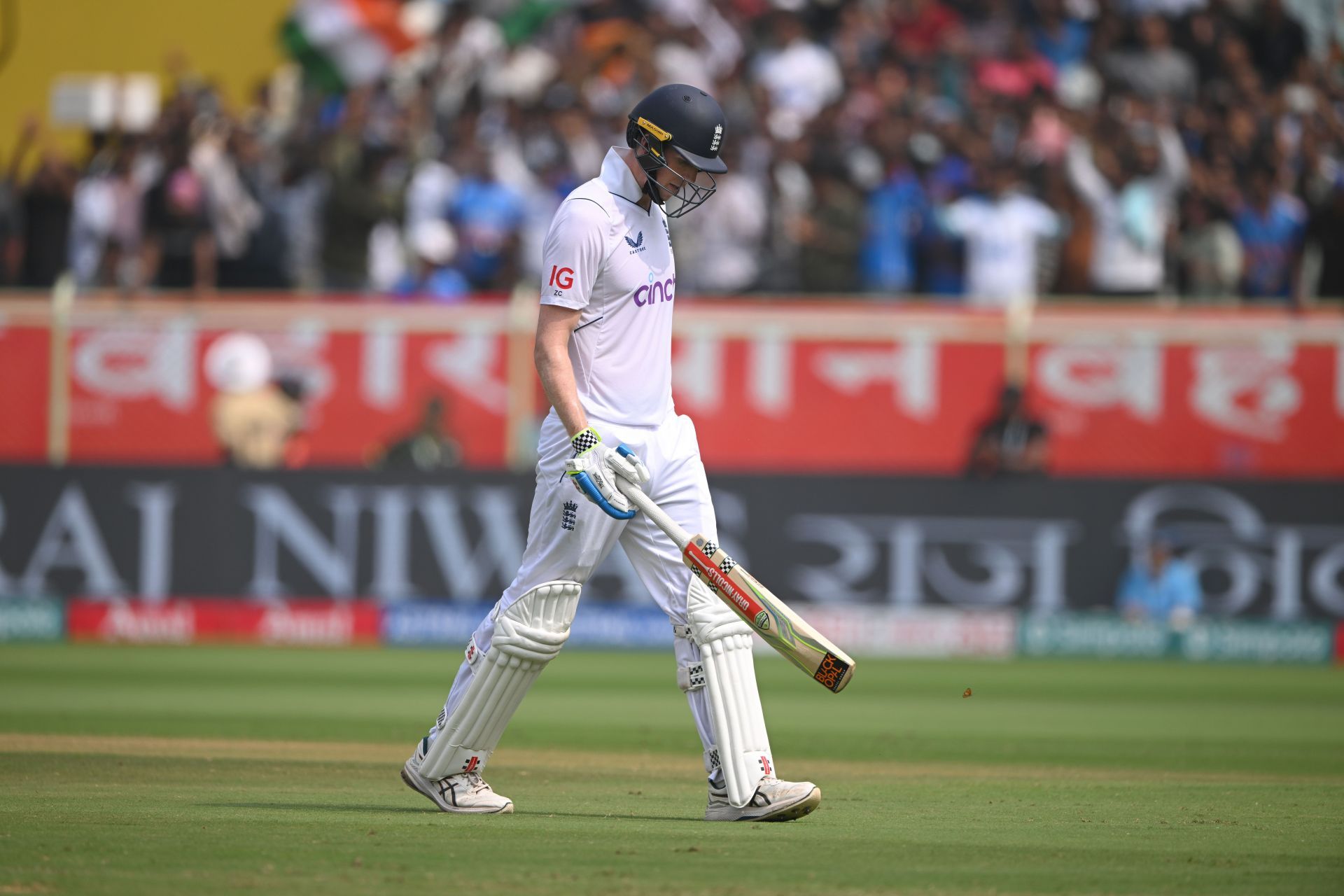
"What you are trying to remove is already removed by default" - Aakash Chopra on Ben Stokes asking umpire's call to be removed from DRS
Aakash Chopra has questioned Ben Stokes' suggestion that the umpire's call should be removed from the DRS (Decision Review System), pointing out that the system was introduced just to stop howlers.
Stokes recently questioned some of the decisions that went against England in the ongoing Test series against India. The England skipper was particularly peeved about three of their batters falling prey to the umpire's call in their second innings of the recently concluded Rajkot Test.
In a video shared on his YouTube channel, Chopra wasn't convinced about Stokes' argument that the umpire's call should be done away with. He elaborated (4:05):
"Ben Stokes has said that he is not liking DRS. He asked the umpire's call to be removed. DRS is not foolproof. So you go towards the umpire's call as you are not 100% certain.
"You say that is what was the umpire's job, so you remain out if the umpire gave it out and not-out if he gave not-out. In fact, that was the truth. It is not a howler. What you are trying to remove is already removed by default," the former India opener added.
Chopra noted that the umpire's call is considered for impact on the pads as the DRS system might not be completely accurate when there are two moving objects. He added that the umpire's call also gets precedence for the impact on the stumps as it is a projection by the ball-tracking system.
"There were 2 or 3 decisions that you felt were 50-50 when you saw them with the naked eye" - Aakash Chopra
![Zak Crawley was given out lbw to Kuldeep Yadav in the Visakhapatnam Test after a review. [P/C: Getty]](https://statico.sportskeeda.com/editor/2024/02/deef1-17084046179781-1920.jpg?w=500)
However, Aakash Chopra acknowledged that a few decisions, including Zak Crawley's dismissal off Kuldeep Yadav's bowling in the second innings in Visakhapatnam, looked slightly dicey to the naked eye. He observed:
"I will be very honest, there were two or three decisions that you felt were 50-50 when you saw them with the naked eye. One was when Zak Crawley got out off Kuldeep Yadav's bowling in Vizag. With the naked eye, it didn't seem like it would hit the middle of the leg stump."
The cricketer-turned-commentator added that Ollie Pope's first-innings dismissal in the Rajkot Test also left him surprised.
"It seemed like at best it would be umpire's call but it wasn't the case. That's the problem with naked eye. After that, when Ollie Pope got out to Mohammed Siraj's ball, there also I felt that at best it could be umpire's call but it hit the three stumps. That was also very surprising," Chopra stated.
While observing that Crawley's second-innings dismissal in the third Test was also slightly controversial, Chopra pointed out that the decision wouldn't have been overturned even if the umpire's call wasn't considered. He explained:
"Then when Zak Crawley got out in the second innings, the umpire had given out, and it was umpire's call only. Stokes said they don't want umpire's call. By the way, what is the meaning of umpire's call?
"The umpire had given it out and you took the DRS. If you don't agree with umpire's call, the umpire had given you out in any case, so you wouldn't have gained anything. So I have got no idea what exactly he is trying to suggest," he added.
Chopra noted that all three slightly questionable decisions wouldn't have gone England's way had the umpire's call not been in place. The ball-tracking system showed the ball hitting the stumps on the two occasions the on-field umpire initially gave it not out and projected it to be clipping the bail on the one instance where the on-field umpire had ruled it out.